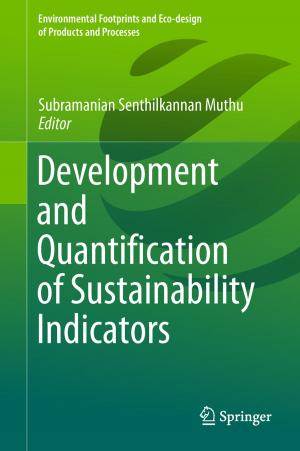Moving the Masses: Bus-Rapid Transit (BRT) Policies in Low Income Asian Cities
Case Studies from Indonesia
Nonfiction, Social & Cultural Studies, Social Science, Human Geography, Sociology, Urban| Author: | Suryani Eka Wijaya, Muhammad Imran | ISBN: | 9789811329388 |
| Publisher: | Springer Singapore | Publication: | February 25, 2019 |
| Imprint: | Springer | Language: | English |
| Author: | Suryani Eka Wijaya, Muhammad Imran |
| ISBN: | 9789811329388 |
| Publisher: | Springer Singapore |
| Publication: | February 25, 2019 |
| Imprint: | Springer |
| Language: | English |
Public transport in low-income Asian (LIA) cities fails to meet people’s mobility needs, generates high greenhouse gas (GHG) emissions and worsens social exclusion. Following successful Bus Rapid Transit (BRT) projects in Bogota and Curitibá, LIA countries promoted BRT in their large to medium-sized cities. However, the political and institutional structure distinctive to LIA cities makes their implementation difficult. This book investigates policy tensions by examining the planning and attempted implementation of BRT projects, taking Bandung and Surabaya in Indonesia as case studies. It analyses BRT to understand how power and communication gaps in institutional relationships between different actors at multiple levels of governance create conflict, and concludes that top-down policies and funding mechanisms cause tension in intergovernmental relationships. It also found that BRT solutions generated socio-political tension arising from the socio-economic realities and local political dynamics that shaped city structure, mobility patterns and capacity in resolving conflicts. The superimposed BRT solution generated discursive tension because conflicting discourses were not aligned with local economic, social, and environmental issues. The book highlights the need to take into consideration the vital role of local social and political actors, institutions and planning processes as they respond to and shape policies that are imposed by higher levels.
Public transport in low-income Asian (LIA) cities fails to meet people’s mobility needs, generates high greenhouse gas (GHG) emissions and worsens social exclusion. Following successful Bus Rapid Transit (BRT) projects in Bogota and Curitibá, LIA countries promoted BRT in their large to medium-sized cities. However, the political and institutional structure distinctive to LIA cities makes their implementation difficult. This book investigates policy tensions by examining the planning and attempted implementation of BRT projects, taking Bandung and Surabaya in Indonesia as case studies. It analyses BRT to understand how power and communication gaps in institutional relationships between different actors at multiple levels of governance create conflict, and concludes that top-down policies and funding mechanisms cause tension in intergovernmental relationships. It also found that BRT solutions generated socio-political tension arising from the socio-economic realities and local political dynamics that shaped city structure, mobility patterns and capacity in resolving conflicts. The superimposed BRT solution generated discursive tension because conflicting discourses were not aligned with local economic, social, and environmental issues. The book highlights the need to take into consideration the vital role of local social and political actors, institutions and planning processes as they respond to and shape policies that are imposed by higher levels.















